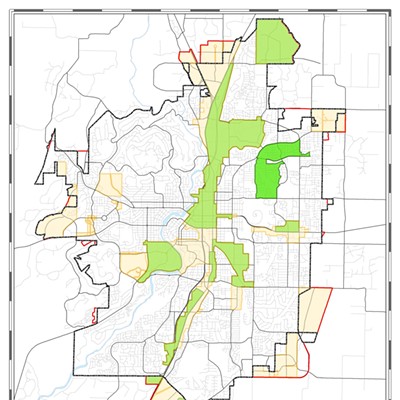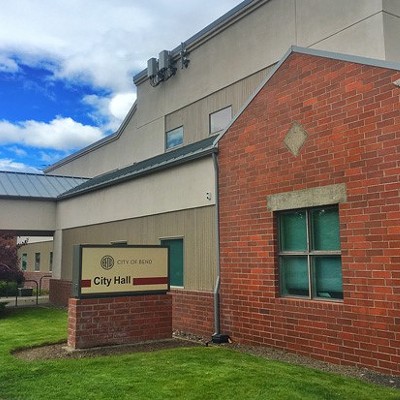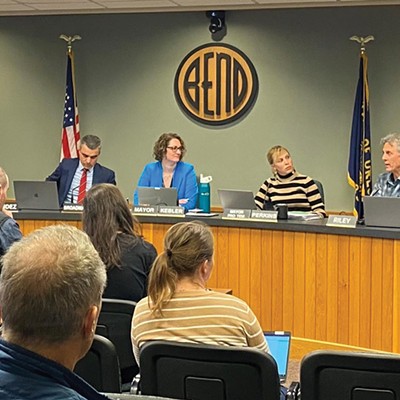As we reported in a web story last week, on Dec. 5, the Bend City Council had its first reading of an ordinance that would see Bend's consumption of plastic bags cut down significantly. The new ordinance, up for a second reading later this month, would prohibit retailers from handing out plastic bags at the check-out counter, and would allow stores to charge customers a 10-cent fee for each paper bag the customer uses. Those receiving food benefits would be exempt from paying the fee.
While the City Council is reluctant to call it a "plastic bag ban" because some plastic would still be allowed (namely, bags used for produce and bulk items), we're OK with calling it a ban. There should be a ban on more single-use plastic nation- and worldwide, as one small part of the the cultural changes that need to happen as humanity wraps its head around the negative impacts we're having on the planet.
The arguments in opposition to this bag ban have been thin at best. Some have even made us laugh.
Some at the recent council meeting argued that people don't wash their reusable bags often enough—and that not washing them invites bad bacteria and introduces the potential for more illness. It's nice that those using that argument are concerned about people's health—because rivers and oceans choked with single-use plastic also pose health problems. By that same logic, you could make the argument that we should all use single-use dishware, because people aren't responsible enough to wash their dishes. If you're reading this, don't forget to wash your reusable grocery bags from time to time—but keep using them.
Another amusing argument introduced recently is the one stating that Bend has yet to conduct a study to find out whether plastic is really a problem in our local area. This one should warrant not much more than a face-palm. A simple look at the fences around Knott Landfill reveal one striking visage: Plastic bags, stuck in the fences and blowing every which way. Do we really need a local study to help us understand that single-use plastic is bad, when national ones suffice? For example, according to the U.S. National Park Service's Mote Marine Lab, plastic never truly decomposes; even when immersed in water, it turns into "microplastic" that can harm people and animals and marine life. It also gums up the machinery at our landfill.
Another thin argument from local pundits: that paper bags require a bigger footprint to produce than plastic. That may indeed be true—all the more reason to use reusable bags instead of single-use anything. But that argument ignores the fact that a paper bag will biodegrade in our lifetime.
Yet another comical argument against reducing our local consumption of plastic: That this is something that should be legislated at the state level, not the local one. We'd love to see a statewide ban on single-use plastic—and not just the grocery bag type—but until that happens, we appreciate the fact that local governments still have the power to answer a call from their constituents, and to do the right thing at the local level—no matter what those higher up in the governmental chain happen to be doing. This bag ban effort stemmed from a group of concerned locals who saw a problem and advocated to change it. That's what local advocacy and action looks like. Were we to wait for federal or state action on any number of fronts, we'd be waiting a long time—and the action may not take into consideration the local feedback that informed this particular ordinance.
When it comes down to it, many of the changes that are going to be required of humanity, in this time of rising awareness of our impacts on the planet, are going to hurt, and will require shifts, in our minds and our actions, away from "the way we've always done it." In this case, however, the "hurt" is negligible and involves simply remembering to bring bags to the store—or, barring that, paying to carry your stuff with a non-plastic bag. That's a hurt we're willing to endure.

























